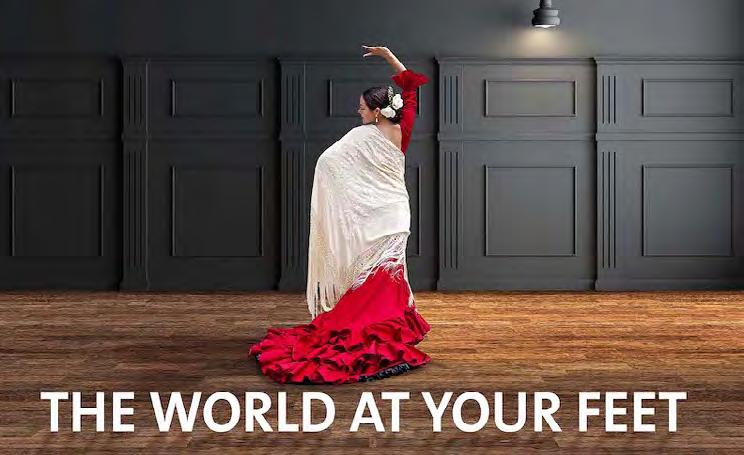
15 minute read
Middle Eest
HANNOVER FAIRS USA ANNOUNCES POSTPONEMENT OF DOMOTEX USA 2021 ANTRON NYLON PUBLISHES SUSTAINABILITY, WELL-BEING REPORT
Hannover Fairs USA (HFUSA), the organizer of DOMOTEX USA , announced today that after careful and thoughtful consideration, the trade show scheduled for March 1-3, 2021, will be postponed.
Advertisement
The decision to postpone the 2021 edition of the show was based upon several factors, including the results of extensive market research as well as ongoing global conditions.
In the months following the 2020 event, an outside research firm conducted an in-depth market study including a survey and interviews with floor covering retailers, distributors and other flooring professionals (inclusive of previous DOMOTEX USA participants) intended to help the organization further understand the industry’s needs, with the ultimate goal of adding more value to the show experience.
“We were pleased with the research results, which indicated a continued need and desire for the DOMOTEX brand in the U.S.,” said Donna Busse, show director of DOMOTEX USA at HFUSA. “With this new insight, we look forward to using the remainder of 2020 and 2021 to develop a show that will incorporate strategic changes for an even better and improved experience for both exhibitors and attendees.
“We would like to thank all stakeholders, partners and interested parties for your support of DOMOTEX USA and we look forward to welcoming you back at the next show,” Busse concluded.
For More information, visit www.domotexusa.com
Invista, makers of Antron nylon 6,6 commercial carpet fiber, released its sustainability and well-being report titled “The Antron Brand on Sustainability.” The report, available in digital and video format, reinforces the brand’s sustainability vision and includes testimonials from interior designers, flooring professionals and end-users detailing their experience with the Antron brand and sustainability.

The premise for this vision, according to the company, is a carpet that lasts longer can drive meaningful sustainability, enhance human well-being and support long-term value.
Long-run sustainability
Antron fibres offer permanent builtin performance, so carpets can work harder, clean up beautifully and resist crushing, matting, staining and soil. This longevity drives real sustainability and supports long-term value.
The total cost of ownership of carpets made with Antron can be 250% less over the life of the carpet, the company said, and can last up to 75% longer than a majority of competitive carpets.
This product longevity supports long-term value and cost savings captured from not having to replace carpet prematurely. “Over the years, most of us have experienced the trend toward short-lived disposable products, and this trend is counter to real sustainability,” said Anthony Green, vice president of global commercial solutions for Invista. “We believe carpets should be durable, not disposable. Antron fibers are designed consistent with the belief that the longer our product lasts, the more sustainable it is.”
Sustainability supports well-being
The brand’s approach to sustainability and innovation is centered on supporting human well-being. “We seek to enhance human well-being and reduce environmental impact through unbeatable product performance including cleanability, durability and longevity that far surpass competitive fibers,” Green said. “That’s sustainability for the long run, and we’re focused on putting people first with products that last.”
OEKO TEX INCREASES CERTIFICATIONS BY 13 %
ORIENTAL WEAVERS CARPETS H1 PROFIT DROPS 42%
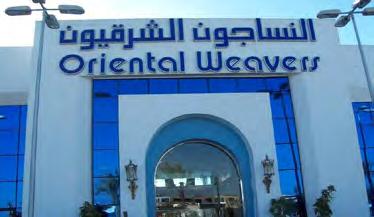
The net profits of Oriental Weavers Carpet slumped by 42.32% year-on-year (YoY) to EGP 266.358 million in the first half (H1) of 2020 from EGP 461.829 million. The company’s sales retreated to EGP 4.078 billion in the six-month period ended on 30 June from EGP 5.236 billion in the year-ago period, according to a bourse disclosure.
Moreover, the company reported standalone net profits of EGP 525.757 million in H1-20, up from EGP 311.396 million In H1-19. During the first quarter (Q1) of 2020, the Egyptian firm’s net profits went down to EGP 197.95 million from EGP 220.29 million in Q1-19.
Oeko Tex has the increased the number of certifications and labels issued by 13 per cent from 21,454 on July 1, 2019 to 24,205 on June 30, 2020. Its focus was largely on the ‘Made in Green’ label, whose demand grew 115 per cent from 1,304 to the current 2,808 valid labels in the financial year 2019/2020.
Issuance of other Oeko-Tex labels, such as Standard 100 and Leather Standard by Oeko-Tex also continued to grow year on year. Newly issued certificates STeP by Oeko-Tex increased 55 per cent to 475 valid certificates worldwide. Detox to Zero was added as a mandatory requirement for STeP facilities to support customers optimizing and monitoring their chemical management and wastewater quality. It helps the textile and leather supply chain to avoid use of toxic chemicals and prevent water pollution, which benefits both people and the environment. Sustainability Maps, a platform that enables users to better understand the sustainability landscape and to connect with business partners.

According to Georg Dieners, Secretary-General, the industry needs to work together to change existing consumption and production patterns to keep the planet’s resources intact and ensure a life for future generations.
The organization has made every effort to continue with certification and avoid supply chain interruptions It processed existing certificate renewals without samples to give certificate owners three additional months to gather samples for testing. To provide people all over the world with mouth and nose masks, the Oeko-Tex Association waived the license fee for certification of masks. It also gave Standard 100 certification to over 50 face masks manufacturers between April and June.
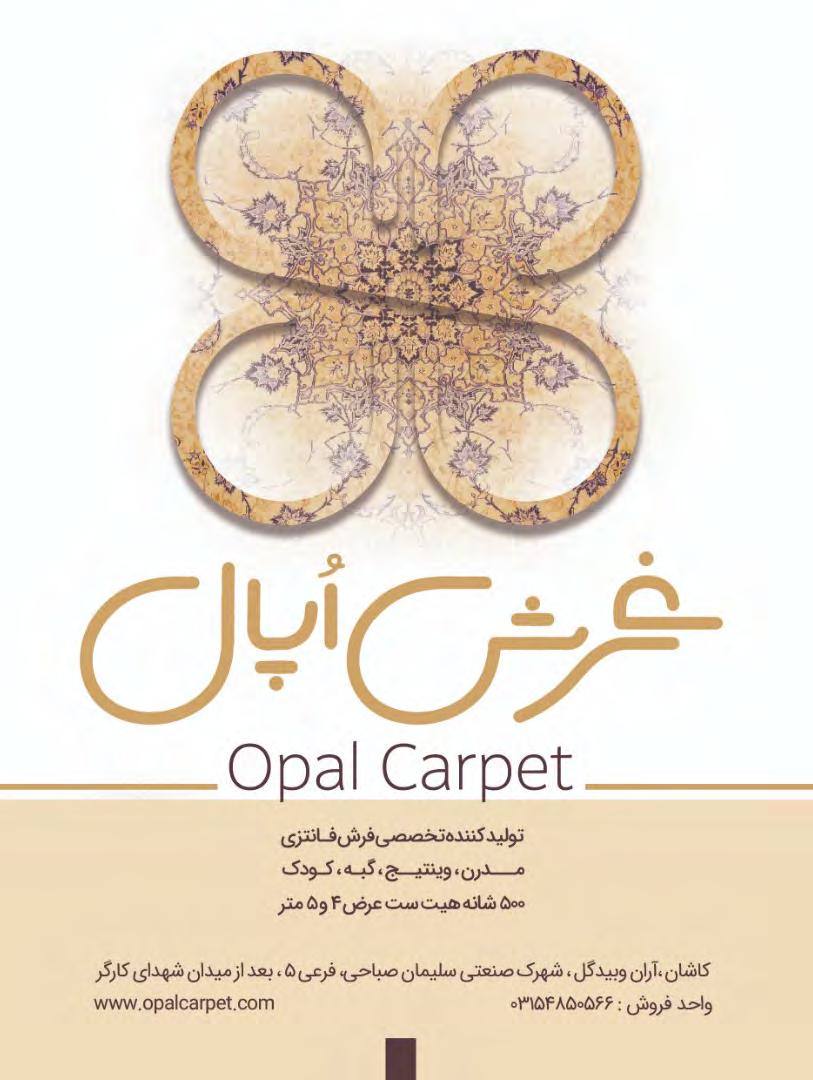
INDEX; MAKE YOUR MARK IN THE MIDDLE EAST

The positivity and resilience the interiors industry has shown when faced with the unprecedented challenge of COVID-19 has been astounding. This global pandemic has impacted the interiors community in multiple ways, not least the ability to meet face-toface and see first-hand the latest innovations & products in design.
statistics and success story?
Sure! At INDEX we like to keep the focus on why we exist. The understanding that the most important part of any room is the people. Whether for work, home or play – these spaces are fast-changing to accommodate an unparalleled shift in the human environment and ultimately a changing dynamic in the interior design industry. At 30 years old, INDEX (the Middle East’s only large-scale interiors trade event) has been a platform to introduce interiors companies into the thriving Middle East market, to sculpt interior experiences in a dynamic real estate environment. Anyone that has worked on a heritage brand in a mature market will understand the difficulty in maintaining growth. For our 2019 event, that was our core objective, and through creative and customer-focused thinking we did just that! The results? In 2019 INDEX in Dubai welcomed 29,945 visitors up 9% from 2018 (27,448) and 17% from 2017 (25,415). A core driver to this was the social campaigns and continues to be the perfect vehicle to keep us engaged with this unique and passionate community 365 days-a-year. This is something we continue to do, just take a look at our channels to see: @indexdubai. The real reward for this was shown in the quality of attendance last year, with the volume of senior executives and decision-makers increasing 20% on 2018. For the suitably Interview with Katie McBride, Director, INDEX – International Design Exhibition
1. Could you please let us know more about INDEX DUBAI exhibition, last year
INDEX Dubai 31 May – 2 June 2021 | INDEX Saudi Arabia 28 Feb – 2 Mar 2021
impressed exhibiting companies, this cemented the understanding of why face-toface events are so important. Quality matters. According to research by Venture Onsite, the Dubai and KSA’s Vision 2030 and so we will
As an organising team, the understanding that customers experienced a true return on their exhibition investment is paramount to inspiring the energy, passion and belief in product that will ensure a stable and growing brand for another 30 more successful years in the Middle East.
2. How do you evaluate Covid 19 Pandemic effects on textile exhibitions industry all around the world?
Textiles is an important and growing sector within INDEX and is a craft that is heavily produced across the Middle East and showcased at our event. The positivity and resilience the interiors and textiles industry has shown when faced with the unprecedented challenge of COVID-19 has been astounding. This global pandemic has impacted the interiors community in multiple ways, not least the ability to meet face-to-face and see first-hand the latest innovations & products in design. Textiles are an incredibly important segment
We can’t speak for other exhibition organisers, but with the safety of our exhibitors and visitors in mind, and with ongoing concerns over future travel restrictions for our 500+ international exhibitors, the difficult decision was made to postpone INDEX to 31st May – 2nd June 2021 (Dubai World Trade Centre). The new dates have been welcomed by the interior design community and have been recognised as an ideal time to once again meet new suppliers, the source for projects and accelerate business in a safe and creative environment.
However, we refuse to let the absence of INDEX 2020 from the calendar affect the community. Our team has been working hard to make sure that interior suppliers and interior designers are connected throughout the year. We’ve launched a webinar series and product showcase videos designed to ensure that the interiors community can continue to find new and innovative products, as well as keeping connected.
3. Could you please let us know about other Branches of INDEX in middle east or
bai, we’ve recently geo-expanded the show into the Saudi market.
UAE leads in the share of interiors and fit-out spend in the GCC region with 42% of the market share, followed by the Kingdom of Saudi Arabia (KSA) (29%). The GCC, particularly the UAE and KSA have witnessed growth in the number of fit-out projects awarded as a result of EXPO 2020 (now EXPO 2021) in continue to support interiors products suppliers from across the world to access these growing markets.
Over the past 3 years, INDEX Saudi has established itself as a leading exhibition for local and international suppliers of interior design and fit-out products to tap into Saudi Arabia’s $3.5 billion interiors market and now welcomes over 10,000 visitors.
4. What do you think about the Middle East and Africa textile market and it’s potentials?
Africa?
for INDEX. According to Mordor Intelligence,
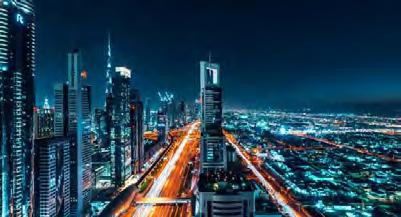
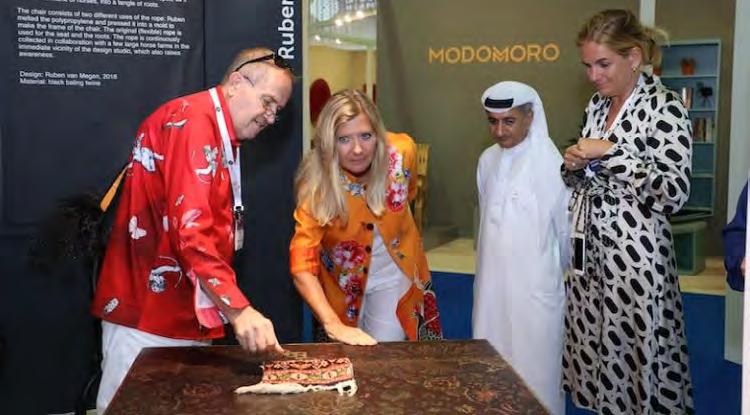
the textile industry in GCC is estimated to grow at a CAGR of 3.8% from 2019 to 2024.
The digital textile printing industry in the GCC is expected to see a market growth US$ 5.44 bn by 2023 with a CAGR of 11.6%, triggered by the eCommerce industry and the exponential demand by the millennials and the rising GenZ population, according to Smithers Pira.
In my opinion though, it’s the creativity and craft flourishing in Dubai that has meant that the textile industry growth in the Gulf region is concentrated in the UAE. Among the GCC countries, particularly, the UAE has garnered a lot of business from other countries moving their base of operation to Fujairah, an area in the UAE. Fujairah is called a ”free zone”, which means that companies located there are not required to pay taxes or pay any fees for repatriation. This is one of the major factors that brought many companies and people into the UAE, which adds a larger customer base for their garments and textiles.
5. What is your plan for INDEX 2021? Do you have any special program, conference or workshop during INDEX 2021?
The plans for INDEX 2021 are well underway and the priority is to ensure that the event is delivered safely for both exhibitors and visitors, and this means re-thinking the way we will be offering experiences and interactions for networking for the next edition. We will continue hosting our renowned INDEX Design Talks conference which creates a huge attraction for high quality interiors buyers, alongside a variety of new and engaging experiences for visitors to enjoy.
More than ever we feel it’s of paramount importance that exhibiting companies have an excellent showcase, and designers will have direct access to new and innovative products in the Middle East.
This means we’re offering lots of extra value to each exhibitor booking to ensure these connections are made pre-event and at the show, in-turn supporting the stabilizing of the interiors sector in a post-pandemic world. One new feature of note will be an exhibit of handcrafted products created in the heart of the show floor by textiles or furniture makers, for us this promotes the importance and sustainability of bespoke and local products when applicable for an interior fit-out.

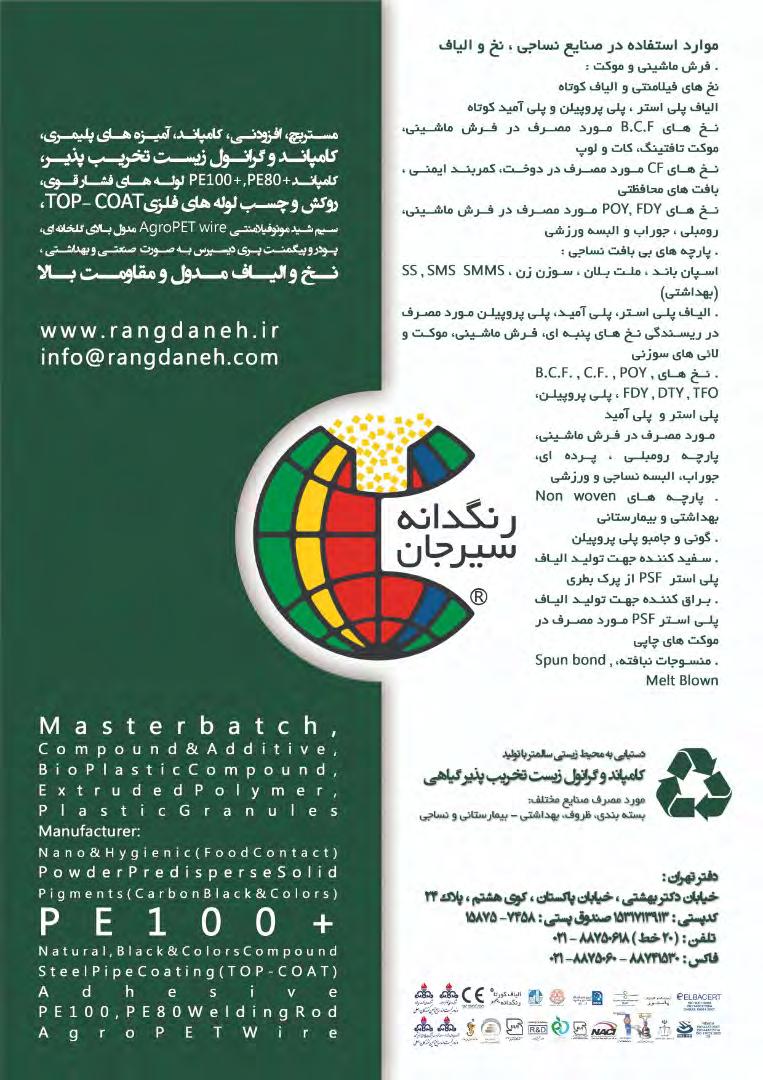
TURKISH CARPET INDUSTRY RECORDS $438.5M IN EXPORTS IN 2 MONTHS
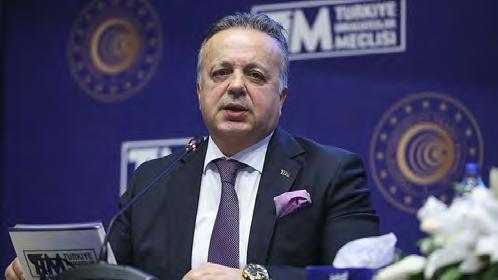
Turkish carpet sellers have made a sum of $438.5 million in exports in just the first two months of 2020, marking a 22.1% year-on-year increase.
Last year, the sector’s export volume exceeded a record-breaking $2.5 billion, according to an Anadolu Agency (AA) report published Wednesday, citing data from the Turkish Exporters Assembly (TİM), while this year’s start indicates similar records and success in exports.
The 2-month figures enjoyed by the carpet industry, which started the new year with an export target of 3 billion, giving hope for the rest of the year, the report said. The carpets were exported to 190 countries worldwide over this period.
Some $221.4 million worth of the exports were recorded in January, while the remaining $217.1 million was exported in the last month.
TİM Carpet Industries Board Chairman Salahattin Kaplan told AA that the growth at the beginning of this year signaled that Turkish carpetmakers would also be better able to weather the recent outbreak of the coronavirus, which has taken its toll on world trade, predicting minimal damage.
“The coronavirus may cause some shrinkage in the economy, but we hope that the market will find relief once the pandemic is over. Hopefully, this trouble will be left behind in the shortest time for the sake of all humanity and the process will be concluded with the least harm. We are hopeful for the future. Once these troubles go away, everyone will focus on economy-oriented business once again and the losses will be recouped,” he said.
Stating that Turkish carpetmakers had become renowned worldwide and were considered leaders in the industry, Kaplan said, “We will consider this troubled period as a period of renewal for ourselves by focusing on digital transformation efforts.”
CHRONICLES OF AL SORAYAI GROUP EVOLUTION
Al-Sorayai Group in 2013 celebrated its 60th year of success. How it evolved into one of the larg est Saudi Arabian conglomerates — with businesses stretching from trading to manufacturing in Carpets, Rugs (one of the longest narrative in the country’s business history in floor coverings), Yarns, Carpet Tiles and Artificial Grass. Trading investments in Vinyl, Parquet, Carpet Tiles, Bed and Linen and Fabrics. This sector continued to grows yearly.
The story began in 1953 in Makkah, when Abdullah and Nasser Al-Sorayai decided to create a business. At that time, Al Sorayai were engaged mainly in trading of carpets in Saudi Arabia with imports from Iran, Pakistan, India, Afghanistan and Turkey as well as other countries.
As the years continues, Al-Sorayai Group con tinued to grow and finally decided to expand into manufacturing of carpets and in 1986 they inaugu rated their first carpet factory and soon extended the reach of their product offering into worldwide markets. It is not surprising to find that in recent years, the group has been recognized as being one of the world’s top carpet manufacturers, rank ing in the top twenty on the consistent basis.
AL-SORAYAI TODAY
The Al-Sorayai Group is aware of the importance of elaborate patterns, modern techniques and colorful, innovative designs that need to be applied. Also very important are the requirements in choosing the best possible raw materials while preserving the charm and intent behind the design.

The industry’s latest design programs are em ployed and highly skilled staff of designers that listen well and understand how to best bring both those basic types of products to the market, as well as exhibiting expertise of also bringing cut ting edge technology and innovative, new “twist” to their new developments, all focused on keeping the company ahead of the competition and offering truly unique products to the customer with great value.
Al-Sorayai Group operates from 5 locations, all independently vertical in their capabilities. The group produces a wide range of products ranging from tufted to printed carpet, as well as Wilton wo ven, Axminster and hand-tufted wall to wall and rug creations. From our contract division, both wall to wall to broadloom and carpet tile products are produced to the highest levels of real world performance, wearability and cleanability.
Today, Al-Sorayai share leadership of a modern conglomerate involved in diverse businesses and with a much broader impact on the life of the employees, business and economic value. Al Sorayai Group’s reputation for integrity, product and ser vice quality, financial strength and prudence, and high professionalism has made it a partner of choice for major international customers and the employer of choice for many of the best and brightest talents.
The respect and trust it enjoys is deemed to have been earned by its long time pioneering business es in the Kingdom, and these are the core values that it treasures the most. Thanks to their 67 years of experienc.,mhe, now the company is regarded highly, not only in its home base Saudi Arabia, but across the entire carpet industry.






